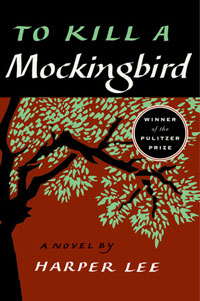Free speech is a vital foundation upon which this nation was built. Media unburdened by censorship and the right of every citizen to speak their mind is something that America fiercely defends and believes is necessary for the moral survival of society.
However, that has not stopped many school districts, libraries,and communities from banning books that they consider to be damaging to youths due to their polarizing and subjectively negative messages. Such books include “To Kill a Mockingbird” by Harper Lee, “The Absolutely True Diary of a Part-Time Indian” by Sherman Alexei, “Captain Underpants” by Dave Pilkey and “The Hate U Give” by Angie Thomas, to name a few.
Banned books often contain topics relating to sexuality, gender and race, or they contain sensitive subjects that institutions believe are not fit for students to handle. Thus, instead of allowing parents and students to determine their level of comfort for themselves, governments, schools and libraries ban certain books, which means that they are not allowed to be sold or checked out in a particular area.
This is an increasing theme across America, particularly in Southern states such as Texas and Florida. According to The Guardian, in the year 2023 Texas made 93 attempts to restrict access to over 2,300 books.
Though this is primarily in other states, it still poses a threat for the Midwest as well. Rachel Popken, one of the librarians at the Dewitt Learning Commons, says that she is “…super disappointed by all the book banning in public libraries and public schools.”
While many of the changes are made in libraries or schools, most of the campaigns are headed by parent activist groups, although some stem from political or religious groups. These groups can “challenge” certain books that they deem unfit for students, which they bring to library or school boards to be contested or voted upon in order to determine whether they are able to be accessed. From there, the notion is either upheld or denied. While these challenges are brought forth from good intentions, they end up doing more harm than good, as they create sheltered and oblivious children without access to answers to their tough questions.
Students are still going to be exposed to tough topics and sensitive content through their peers and media, so to ban quality books is denying them a safe space to learn about beliefs and ideas different from their own. Glossing over difficult parts of history does society no good, as it builds an idealistic, inaccurate narrative of the past.
To censor books that claim the USA is perfect is inherently un-American.
NW student Blake Johnson echoes this, saying that “I don’t think they should ban books in America. I mean, we are a free country so we should be able to read what we want.” In order to uphold the nation’s ideals and create spaces to talk about sensitive themes, books need to be accessible, even those that differ from one’s personal beliefs.
Books have the opportunity to create both windows and mirrors. Windows to peer into others’ stories in a way that provides different perspectives and personal beliefs, and mirrors to reflect one’s own background and experiences that validates and builds solidarity with the reader. To ban books with content from real people’s stories is to smash windows and mirrors of opportunity for young students seeking answers and information. Tough topics and different perspectives belong in libraries and our lives; to ban them is to deny the human experience and its potential for growth.

“To Kill A Mockingbird”, a novel by Harper Lee, is banned in schools.